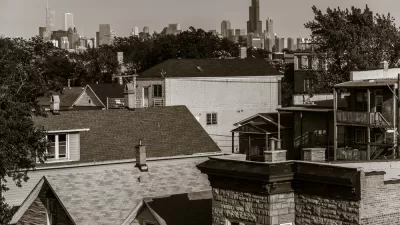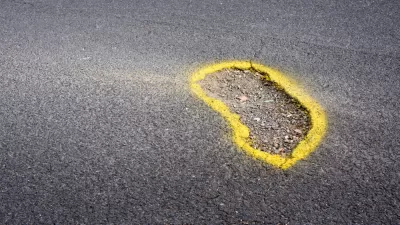After the city's government cut funding to mental health services, closing many of the city's clinics, residents of Chicago's West Side voted overwhelmingly to tax their properties to reverse that trend.
Since the start of Rahm Emanuel's first term as mayor of Chicago, mental health facilities have been a hot-button issue. When the mayor's office and the City Council voted to close a number of facilities around the city, setting off protests and think pieces.
Some funds for those facilities will be back in the budget after West Side residents voted to tax themselves. "By a vote of 86 percent to 14 percent, residents on the West Side voted for an additional levy on their properties," Paris Schutz writes for Chicago Tonight.
"The initiative was led by the nonprofit Coalition to Save Our Mental Health Centers and a collection of clergy and community activists on the West Side. They spent the summer gathering petitions to get the binding referendum on the ballot, and then urging people to vote yes," Schutz explains. The new mental health center is scheduled to open in 2018.
FULL STORY: West Side Residents Approve Higher Taxes for Mental Health

Planetizen Federal Action Tracker
A weekly monitor of how Trump’s orders and actions are impacting planners and planning in America.

Maui's Vacation Rental Debate Turns Ugly
Verbal attacks, misinformation campaigns and fistfights plague a high-stakes debate to convert thousands of vacation rentals into long-term housing.

San Francisco Suspends Traffic Calming Amidst Record Deaths
Citing “a challenging fiscal landscape,” the city will cease the program on the heels of 42 traffic deaths, including 24 pedestrians.

Amtrak Rolls Out New Orleans to Alabama “Mardi Gras” Train
The new service will operate morning and evening departures between Mobile and New Orleans.

The Subversive Car-Free Guide to Trump's Great American Road Trip
Car-free ways to access Chicagoland’s best tourist attractions.

San Antonio and Austin are Fusing Into one Massive Megaregion
The region spanning the two central Texas cities is growing fast, posing challenges for local infrastructure and water supplies.
Urban Design for Planners 1: Software Tools
This six-course series explores essential urban design concepts using open source software and equips planners with the tools they need to participate fully in the urban design process.
Planning for Universal Design
Learn the tools for implementing Universal Design in planning regulations.
Heyer Gruel & Associates PA
JM Goldson LLC
Custer County Colorado
City of Camden Redevelopment Agency
City of Astoria
Transportation Research & Education Center (TREC) at Portland State University
Jefferson Parish Government
Camden Redevelopment Agency
City of Claremont





























